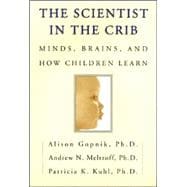The new science of children also reveals insights about our adult capacities, helping to solve some ancient questions: How do we know there really is a world out there? How do we know that other people have minds like ours? It turns out that we find solutions to these problems when we are very small. But these astonishing capabilities don't disappear in later life, as the authors show in their engaging discussion of humans' potential for learning. In fact, they argue








